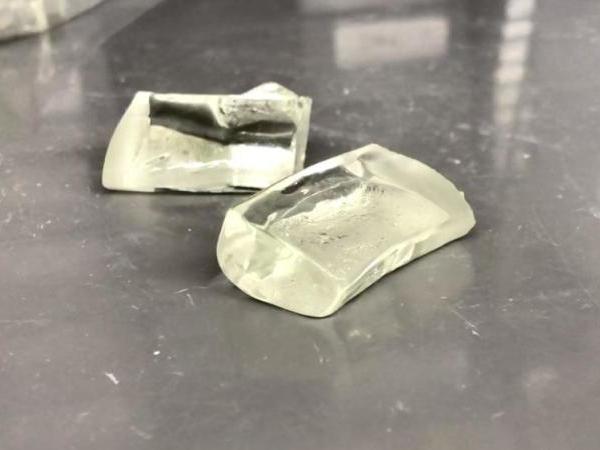
Date: 11 September 2023
- A team of Penn State students and scientists invented and engineered an entirely new family of glass that requires significantly less energy to produce and is much more damage resistant than standard soda lime silicate glass.
- Since announcing the discovery in July, the lab has built partnerships with corporations around the globe, including major glass manufacturers and customers of the glass industry. The team is now working with industry to tests the limits of the material, called LionGlass, to see how it can be used in the real world.
One of the few things scientists know for certain about glass is that its atomic structure is chaos. Neither liquid nor solid, glass is its own phase — a material somewhere between these two states of matter — that owes its existence to the way it is formed.
Glass is made by heating a mixture of materials to molten temperatures and then quickly cooling the scorching hot liquid, a process called “quenching.” Such a rapid transition doesn’t give the atoms enough time or energy to arrange themselves into the highly organized lattice-like structures of solid matter. Instead, they remain disordered, like molecules in a flowing liquid, but frozen in place, rigid like a solid.
“In many ways, glass is a state of matter all its own,” said John Mauro, Dorothy Pate Enright Professor of Materials Science and Engineering at Penn State. “Any liquid can form a glass if it’s cooled rapidly enough. You can make glass out of water. In fact, physicists believe that most of the water in the universe is probably in glassy form. In movies, they use glass made from sugars for breakable windows, and there are dozens of glasses made from metallic alloys. Anything that can be liquefied can be brought into the glassy state if quenched fast enough to avoid crystallization.”
What the average person thinks of when they picture glass is silica or soda lime silicate glass, Mauro explained. It is the common glass used in everyday items from windows to glass tableware, and it’s made by melting three primary materials: quartz sand, soda ash and limestone.
But soda lime silicate glass is just one small family in a long lineage of glass — and only a fraction of those are made by humans. Naturally occurring glass like obsidian exists at volcanic sites around the world. Glass has been discovered within impact craters on Mars. A single-celled algae known as a diatom produces beautifully intricate silica glass shells.
“Glass has been here far longer than we have,” Mauro said. “Since prehistoric times, humans have been using it as a tool — and that tool continues to shape civilization today.”
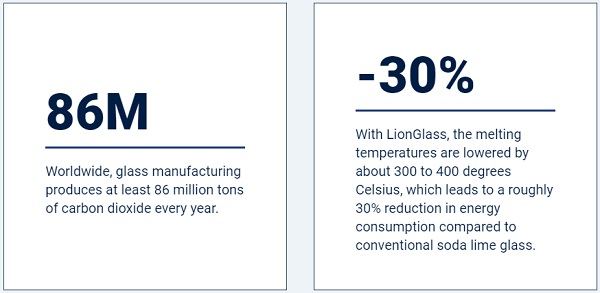
Time for a change
The recipe for silicate glass has been used for thousands of years. Silicate glass beads appeared in Mesopotamia over 5,000 years ago. Mauro said that’s likely because the composition is made from three of the most abundant minerals on Earth.
“The components are readily available and, if you get the right ratios, they melt nicely and form a durable glass,” Mauro said. “Historically, that mixture has been the basis for humanmade glasses. It’s used for windows and windshields, jars and the cups you drink from. The composition for common glass hasn’t changed in decades, or even millennia, but we are about to change that.”
Mauro and a team of students and scientists have invented and engineered an entirely new family of glass, called LionGlass, that requires significantly less energy to produce and is much more damage resistant than standard soda lime silicate glass. Unlike other humanmade glasses, the composition for LionGlass is not based on the age-old mixture of quartz sand, soda ash and limestone.
Mauro recently filed a patent application as a first step toward bringing the product, named after Penn State’s Nittany Lion mascot, to market. Its specific recipe is protected information until the patent process is finalized.
The motivating factor for finding a new formula for standard glass was reducing carbon emissions, Mauro said. Soda ash is sodium carbonate and limestone is calcium carbonate, both of which release carbon dioxide, a heat-trapping greenhouse gas. During the glass melting process, the carbonates decompose into oxides and produce carbon dioxide, which gets released into the atmosphere, Mauro explained.
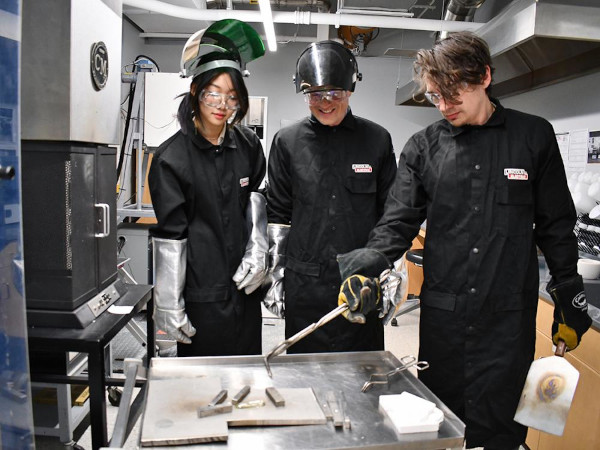
But the bulk of the carbon emissions come from the energy required to heat furnaces to the high temperatures needed for melting glass — around 2,700 degrees Fahrenheit or 1,480 Celsius. With LionGlass, the melting temperatures are lowered by about 300 to 400 degrees Celsius, Mauro explained, which leads to a roughly 30% reduction in energy consumption compared to conventional soda lime glass.
Worldwide, glass manufacturing produces at least 86 million tons of carbon dioxide every year. LionGlass, made without carbon-based materials and at a lower melting point, promises to cut this carbon footprint in half, Mauro said.
“Our goal is to make glass manufacturing sustainable now and for the future,” Mauro said. “LionGlass works toward that goal on two fronts. It doesn’t have any carbon-containing batch materials, and it significantly lowers the melting temperature of glass.”
Reflection of progress
Glass has played an integral role in the advancement of industry, arts and culture.
“It has been critical in bringing modern civilization to where it is today,” Mauro said. “Consider how often we use glass screens, and data are fed to those devices through thin strands of glass fiber optics. We’re sitting in buildings with natural sunlight coming through windows. Even vaccines we’ve taken to stay healthy have been stored and transported to us in strong, chemically resistant glass packaging. All of this is made possible by glass.”
Yet despite its many centuries of use, scientists still don’t have a clear understanding of how glass works at the atomic level. Glass falls into a category of matter called a non-crystalline substance, which includes other materials ubiquitous in daily life like plastics, rubber, gels and tar. Its atomic arrangement is more like liquid, but it behaves like a solid, despite the fact that it lacks the crystalline atomic structure common in solids. This juxtaposition makes it difficult to capture glass atoms in action — and it is what makes glass such an elusive material.
“A deeper understanding of the non-crystalline structure of glass could revolutionize technology in the coming years,” Mauro said. “Glass is atomically disordered and it’s always changing, so no two parts of a piece of glass are the same. Whether it is strength, color or conductivity, every tiny section of glass has its own properties.”
Mauro and his team have developed a research theme they are calling “decoding the glass genome” to better predict how a piece of glass behaves, and they plan to eventually quantify and manipulate the ever-changing atomic structure of glass.
They are using modeling and artificial intelligence to help design and understand new compositions, combining the fundamental physics of glass with machine learning to aid in the design of new glasses with improved properties.
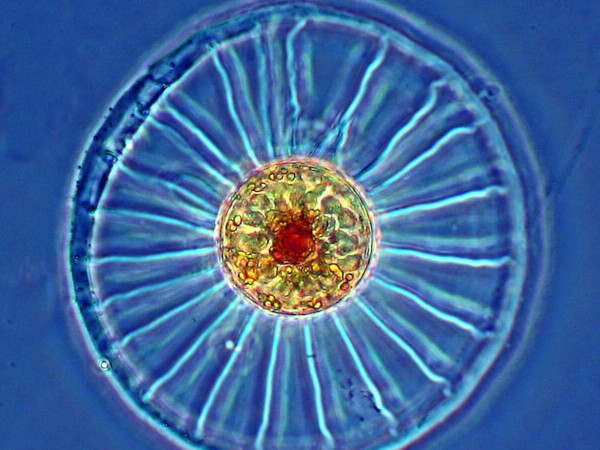
“There are so many global challenges that the world is facing, with respect to environmental issues, renewable energy, energy efficiency, health care and supporting urban development,” Mauro said. “Glass plays a critical role in all of those areas.”
To market, to market
When it comes to LionGlass, the team is now taking its cues from industry. Since announcing the discovery in July, the lab has built partnerships with corporations around the globe, including major glass manufacturers and customers of the glass industry. Mauro and a team of Penn State students are now working with industry to tests the limits of LionGlass to see how it can be used in the real world.
“Rather than thinking of LionGlass as a specific composition, what we’ve patented is an entire family of glass,” Mauro said. “That means we are exploring the properties of a great range of compositions within that family — and maybe even discovering adjacent families.”
Nick Clark, a postdoctoral fellow in Mauro’s lab, is leading the team’s efforts to better understand the real-world applications of LionGlass. Clark began his research career as an undergraduate in Mauro’s lab nearly a decade ago. He’s been witness to the entire invention process for LionGlass and is now navigating its transition from a basic scientific discovery to an applied product for everyday use.
“It’s been amazing to go from seeing its genesis to testing its practical uses,” Clark said. “And, to be clear, we are still in the discovery phase. We are setting the processing conditions and finding compositions and discovering applications for those compositions. It’s thrilling to see what LionGlass can do.”
Clark has already discovered one thing LionGlass won’t do: crack under pressure. It turns out that LionGlass is not only easier on the environment, it’s also much stronger than conventional glass. Clark said he was surprised to find that LionGlass possesses significantly higher crack resistance compared to standard glass.
In fact, some of his LionGlass compositions had such a strong crack resistance that the glass would not crack, even under a one kilogram-force load from a Vickers diamond indenter, a scientific instrument used to determine the toughness of materials.
“We kept increasing the weight on LionGlass until we reached the maximum load the equipment will allow,” Clark said. “It simply wouldn’t crack.”
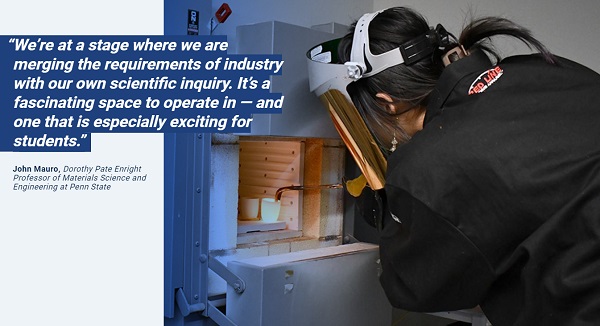
An unbreakable breakthrough
When he crunched the numbers, Clark discovered that LionGlass is at least 10 times as crack resistant as standard soda lime glass, which forms cracks under a load of about 0.1 kilograms force. He added that the limits of LionGlass’s crack resistance have not yet been found, because they reached the maximum load allowed by the indentation equipment.
“This discovery is very good, because crack resistance is an indicator of long-term mechanical performance,” Clark said. “Microcracks and scratches are what cause weak points in glass and eventually cause it to fail. When a piece of glass breaks, it’s normally due to these existing microcracks, so if LionGlass is resistant to getting those cracks, it makes for a much stronger material.”
Mauro added that stronger glass also means thinner glass, which is more good news for the environment, because LionGlass has the potential to be 10 times lighter than conventional glass, requiring far fewer emissions to transport. Clark said he expects to uncover more useful attributes of LionGlass as he works with corporations to test how the material behaves within a range of environments and stressors.
“We're still kind of exploring,” Clark said. “We’re looking at different problems and seeing what changes and if we have any more surprises out there.”
Clark is currently in the process of exposing various compositions of LionGlass to an array of chemical environments to study how it reacts. Soda and wine bottles, for example, have to withstand a highly acidic chemical environment, so he’s testing how LionGlass reacts against a variety of pH levels. Windows need to withstand corrosion caused by a wide range of physical and chemical stress, so he’s developed a range of experiments to test durability.
“We’re at a stage where we are merging the requirements of industry with our own scientific inquiry,” Mauro said. “It’s a fascinating space to operate in — and one that is especially exciting for students.”
Clark regularly interacts with corporate partners to design and tailor experiments to collect data based on the ultimate intended use for the glass. This summer, he was joined by Julia Chen, a Penn State undergraduate materials science and engineering major.
“Because the composition is still in its infancy stage, we did not know too many properties of LionGlass, so we spent the summer conducting experiments to determine them,” Chen said.
They conducted chemical durability tests to see how LionGlass would dissolve in water over time and at certain temperatures; measured its hardness and crack resistance; and analyzed the ions released as it dissolved in water. A third-year student, Chen recently joined Penn State’s Schreyer Honors College and will be writing her honors thesis on LionGlass. She said she plans to give presentations on sustainability in industry at a variety of conferences this year.
Clark said working with industry has not only increased the lab’s professional network; it has generated new avenues of inquiry, taking him to unexpected places in his research.
“What’s amazing is I can have an idea for a new composition in my office, walk downstairs to the furnace and create the glass, then head over to our lab and test it, then walk across campus and characterize it,” Clark said. “This is all in one day — and only possible in a place like Penn State, where you have what you need to take an idea and make it an invention.”
 600450
600450



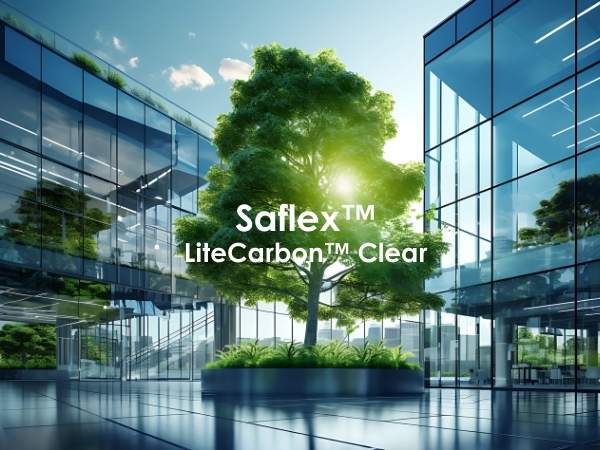

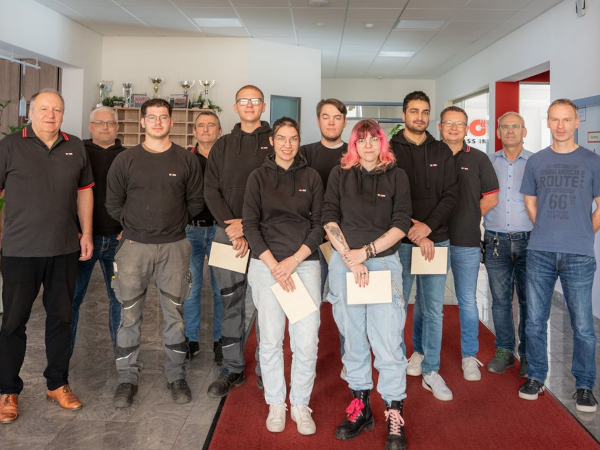
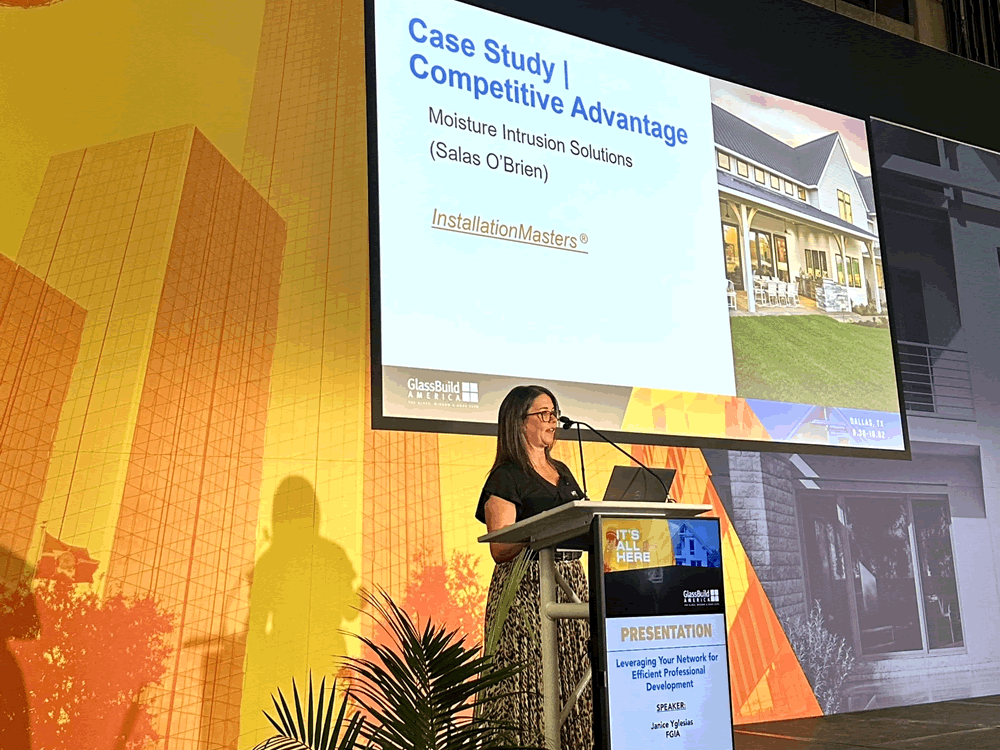
Your patented technology doesn't just focus on a single type of glass composition. Instead, you're exploring a whole family of glass compositions, which allows you to investigate the properties of a wide range of compositions within that family. This approach may even lead you to discover adjacent families with unique properties.